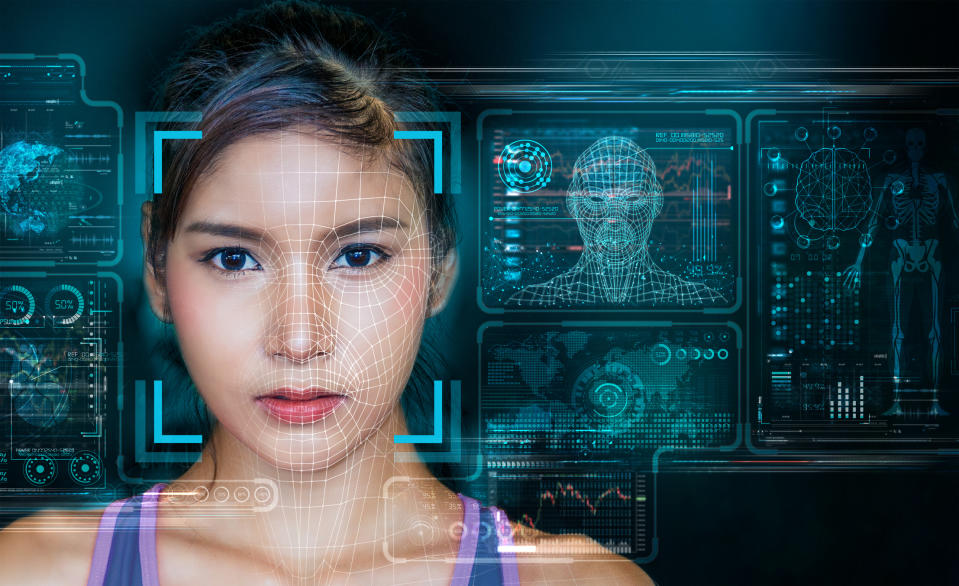The world’s scariest face-collecting app has just been hacked

Google is known for pushing boundaries when it comes to people’s data, but there’s one area of privacy not even it would touch: facial recognition apps.
But someone has: Australian technology creator, Hoan Ton-That, developed a tool that would allow users to take a picture of a person, upload it and get to see public photos of that person, along with links to where those photos appeared.
Known as Clearview AI, the facial recognition app is now used by 600 law enforcement agencies, including local police in Florida, the F.B.I and the Department of Homeland Security.
The app is financially backed by billionaire Peter Thiel, who co-founded PayPal and was an initial investor in Facebook.
Also read: ‘Very concerning’: The underage millionaires living in secret mansion
Also read: Facial recognition startup Clearview AI says its full client list was stolen
But there are serious implications of an app like this. So much so that Google’s chairman, Eric Schmidt, stated in 2011 that the company wouldn’t touch facial recognition technology because it could be used “in a very bad way”.
And it seems that day has come: Clearview AI has suffered a data breach, the Daily Beast reported on Wednesday.
The startup told its users that an intruder “gained unauthorised access” to its entire list of customers and to the number of user accounts those customers had set up.
"Unfortunately, data breaches are part of life in the 21st century,” Clearview AI’s lawyers, Ekeland told the Daily Beast. “Our servers were never accessed. We patched the flaw, and continue to work to strengthen our security."
What is Clearview AI?
Clearview AI was founded in 2017, and is described as an “American technology company that provides facial recognition software, primarily for law enforcement agencies”.
Its founder, Ton-That is a self-taught engineer, and as a student, was ranked the number one solo competitor in Australia’s Informatics Olympiad.
Ton-That moved to San Francisco when he was 19, and created over twenty iPhone apps with over ten million downloads, before beginning Clearview three years ago.

While some facial recognition tools are available already to law enforcement officers, Clearview offers something different: it has scraped the public web (Twitter, Facebook, Venmo) and built a database of billions of photos of people across the globe.
The pitch is that you could take a photo of a suspected criminal, put it into the app and identify them in seconds.
But in reality, it’s a tool that has long been thought of as too taboo for tech companies because of the potential repercussions if it landed in the wrong hands.
Why is Clearview AI so dangerous?
The New York Times reported that Clearview AI downloaded 3 billion images from the internet from Facebook, YouTube and Venmo - a process which actually violated Facebook’s terms of service.
And while it’s currently only in use by law enforcement officers, given the amount of information available on the tool, like a person’s address, friends and hobbies, it still poses a threat.
“Imagine a rogue law enforcement officer who wants to stalk potential romantic partners, or a foreign government using this to dig up secrets about people to blackmail them or throw them in jail,” Eric Goldman, co-director of the High Tech Law Institute at Santa Clara University told The NY Times.
If Clearview AI was in public hands, it could be even worse.
“If you were at a bar, and someone saw you and was interested in you, it would mean that they could take your photo, run your face through the app, and then it pulls up all these photos of you from the internet, and it probably takes them to your Facebook page” Kashmir Hill, NY Times technology reporter said on The Daily Podcast.
“Now they know your name, they know who you’re friends with, they can Google your name, see where you live, where your work, maybe how much money you make,” Hill said.
“Let’s say you’re a parent and you’re walking down the street with your child. They can take a photo of you and see where the two of you live.”
And some say it could lead to a Black Mirror-esque future.
“Laws have to determine what’s legal, but you can’t ban technology,” an investor in Clearview AI told the publication. “Sure, that might lead to a dystopian future or something, but you can’t ban it.”
Its founder, Ton-That, also has been linked to a phishing site, with the company attempting to sell a database for “extreme opposition research” to Paul Nehlen - a white supremacist and anti-Smite who was running for Congress at the time, the Times reported.
But Ton-That himself isn’t phased: when asked by The Times’ reporter whether there are any implications of bringing this kind of privacy-breaching power into the world, Ton-That didn’t believe there were.
“I have to think about that,” he said. “Our belief is that this is the best use of the technology.”
Lawmakers respond
After the New York Times’ investigation into Clearview, cease-and-desist letters rolled in from tech giants like Twitter, Google and Facebook.
Canadian privacy regulators also launched an investigation into the company, not long after Toronto police admitted they were using the AI tool, and New Jersey enacted a statewide ban on law enforcement using the tool while it investigates the software, CNN reported.
Make your money work with Yahoo Finance’s daily newsletter. Sign up here and stay on top of the latest money, news and tech news.
Follow Yahoo Finance Australia on Facebook, Twitter, Instagram and LinkedIn.

 Yahoo Finance
Yahoo Finance 